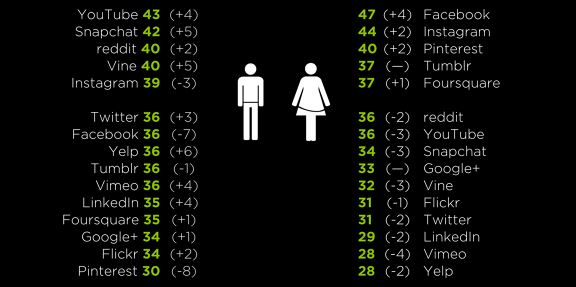UK Fashion Clothing Market
The UK fashion clothing market has been hit by many changes in the last decade. The UK’s plan to exit from the European Union has been one of the main changes that are facing business in the UK. The EU has been regulating trade in its member states and the UK’s exit will present a new environment for fashion retail market in the country (Dhingra, Ottaviano, Sampson, & Reenen, 2016). UK Fashion retailers have been enjoying free trade under the membership of the EU. In the past cloths are presented in shops where buyers could come and buy. Then come e-commerce. Cloths are sold over the websites and marketing is done through social media, a change that many clothing retailers are struggling to come into terms with. The economic recession presents an environment where businesses struggle to grow due to low sales and the high cost of doing business. This report will refer to Zara fashion Company to analyze the key changes in the UK fashion clothing market and suggest strategies to fix the changes.
UK Fashion – An Introduction to Zara Fashion Company
Rosali Mera and Amancio Ortega founded Zara in 1975 in Galicia, Spain, under the name Zorba. They later changed the name to Zara after noticing that there was a bar several meters away which had the same name. The company opened many other outlets in Spain during the 1980s. During the 1980s, Ortega started using a group of designers rather than individual retailers to respond to the new trends in the market in the fastest way possible. He also introduced information technologies to reduce lead times. In 1988, the company started to expand internationally and by 2011, the company had many retailing shops in the UK, China, Estonia, Russia, Philippines, South Korea, India, Australia, and South Africa. The company sells over 480 million clothing items every year in its shops.
In 2010, the company launched an e-commerce site where the cloths can be sold. The site was available in the UK, Germany, France, Portugal, and Italy. After five years, its online services extended to all other countries where it has shops. In 2014, RFID technology was made available in its shops. RFID technology involves fixing RFID chips on clothes before they are sold which notify them when a cloth is sold for an immediate replacement.
Zara retails on both men and women clothes. Children cloths are also sold under the name Zara Kids (Zara.com, n.d.). Zara uses consumer trends in the market to supply the clothes. The company spends less than 15 days before new cloths reach the shops after they have been manufactured.
Changes within the UK Fashion Retail Market
Economic Changes
A report made by the World Bank puts the UK at number fifth in the world of the largest economies. The high population of the UK and enabling infrastructure enables smooth business which makes the country attain the fifth largest GDP in the world after the US, Japan, and Germany. However, the UK was hit by the economic recession in 2008 and the recessionary conditions are just decreasing gradually. Zara has been storing new clothes in its shops twice a week but during the recession period, the target could not be achieved. The recession period presented a high cost of living to citizens making it difficult to buy cloths every time. Zara had to store its clothes in stores for a longer period than expected.
Another economic change that has hit the UK market is increased inflation rates. The inflation rate in the UK reached 3.1% percent in November 2017. This increase in inflation rates translated to increased prices on clothes which make it difficult for consumers to purchase the clothes (Cowling, Liu, Ledger, & Zhang, 2015). Zara stores cloths which have been manufactured in its plant in Spain. The inflation rates in the UK makes the cost of importation to be high which forces the company to sell its cloths at higher prices than before. The consumer confidence in the UK is depreciating due to an unexplained increase in the company’s products. The company is struggling to restore consumer confidence and at the same time sell at prices that can make it make profits.
Corporate taxes has been increasing in the UK. The corporate taxes were 17% at first before they increased to 19% and now the Labour Party promises to increase the corporate taxes from the current 19% to 21%. The corporate taxes are one of the largest expenses of the company as they account for 19% of the profits that are made. Increasing the corporate taxes will lead to a reduction of the amount of money that is shared to the owners of the business (Suárez Serrato, & Zidar, 2016). They increase the cost of doing business which forces retail companies to increase their prices.
Political Changes in UK Fashion
The UK is set to exit from the EU. The company faces uncertainties of whether the importation tariffs will increase and by how much. The company sells which have been manufactured in Spain cloths in its UK shops. The UK and Spain being member states of the EU enjoy free trade. By free trade policies of the EU, the company pays zero importation tariffs to import its goods to the UK. This means that it can sell the sale the cloths at the same prices as those in Spain.
However, the UK’s exit from the EU (Brexit) will come with changes in trade terms which will include the introduction of importation tariffs since the UK will no longer be a member state of the EU. The companies will have to pay importation tariffs for the goods imported from Spain. This will increase its cost and make the company increase the price of clothes. Selling the cloths at high prices than those of the competitors like Arcadia UK fashion group which sell clothes made in the UK will have adverse effects on its business.
The pre-Brexit policies have not been formulated which brings further uncertainties about how the business will be done after the UK withdraws from the EU. The minister of trade in the UK held a meeting with the UK Fashion and Textile Association in December 2018. However, a clear direction was not given to the fashion retailer on how they will do their business after the Brexit.
Technological Changes
The UK provides one of the fasted bandwidths on the continent. The penetration of smartphones in the country has been high in the last decade. This enabling environment has made people within the market to change their shopping preferences to online shopping. People are now preferring to shop over the websites (Peng, An, & Vecchi, 2017). UK Fashion retail companies are facing this challenge by investing in e-commerce and launching shopping websites. Zara has never been left out in this campaign and in 2014, it launched its online boutique in the UK.
Environmental Changes
The recessionary period in the UK presents an environment where business finds it difficult to grow at the expected rate. In as much as Zara Company want to expand by opening more sales in the UK, the environment discourages such a move. The recessionary environment also makes it difficult to make the expected prices and abide to its policy of replacing the stocks twice a week.
Legal Changes
In May 2018, General Data Protection Regulatory (GDPR) came into force. The policy requires every social media firm and e-commerce sites to be transparent on how customers data is used. Zara Fashion Company is affected by the regulation since it owns an online boutique launched in 2014. To avoid litigations, the company should adhere to the General Data Protection Regulatory (GDPR) regulations. In April 2018, the bill passed by the UK parliament came into force. The bill required that all companies whose employee turnover is above 250 to publish the details of the employees including their gender and their salaries. This new rule affects Zara because it has more than 250 employees.
Social Changes
Unlike Spain where the market comprises of one main race with similar culture, the UK market features multi-ethnic cultures. The market has different design needs which should be fulfilled. Different people living in the UK have different design preferences.
Changes within the Micro Environment
Changing trends in the UK Fashion Market
The designs in the clothing market are subject to change within a short period of time. If the clothes are not sold within a short period of time they become useless to the customer and they might never be sold (Grewal, Roggeveen, & Nordfält, 2016). The company uses a group of designers to design every new design that is introduced as a tactic to respond to the changing trends in the market. The company also sells the cloths within a week to avoid cloths saying for long in the shelves which might render them useless. The RFID tag on clothes can monitor the clothes that have spent a long period in the shelves and change them.
Change in Marketing Strategies
Two decades ago Television sets and the print media were the well-known and reliable marketing channels. However, the changes in technology have brought digital marketing where marketing can be done over the internet. Social media marketing is also a new trend in fashion marketing. Social media sites are being used to market fashion products. Links are created on social media pages which lead the user to the website of the retail company (Okonkwo, 2016).
Increased Competition in the Retail UK Fashion Market
The UK market has too many too many fashion companies which bring undue competition in the market. The competition has led to a reduction of prices by some fashion retailers. Large discounts are also being offered to lure customer.
Online shopping
Over the last decade, consumers have a switching motive from shopping in the malls to shopping over the e-commerce sites. Some customers prefer online shopping to shopping in the shops. Retailers in the UK fashion market are exerting pressure by using e-commerce sites to sale their products. The company’s in the market are now required by the standards set by the level of competition to have both selling channels. Zara Company uses its online boutique to respond to such changes in selling strategies. The company has now used its online platform for a period of four years.

Strategies and Tactics to Employ
Open a manufacturing plant in the UK
Zara Company depends on clothes that are made in Spain and transported to the UK. After the UK’s exit from the EU, there will be tariffs imposed on the imports. The tariffs will increase the price of clothes imported by Zara Company. To avoid import tariffs Zara should retail on cloths made in the UK rather than importing its stock from Spain. Zara has four manufacturing plants where its cloths are made. The plants are in Spain, Morocco, Portugal, and Turkey. The cloths made in Spain are freely exported and sold in European Union member states including the UK, Spain being a member of the EU. However, after the Brexit, it will not be easy to transport them under free trade terms to the UK.
Staff Training
One of the challenges in retail fashion market is the ever-changing trends in the market. A new design can register large sales today and become an old fashioned cloth with a year. If such cloth spends a year on the shelves without beings customers will start ignoring it for new fashions. Although Zara has been using trend in the market to sell its clothes, staff training is essential. The staff should be trained on how to respond to ever-changing trends in the fashion market (Dillenburger, 2017). With the incorporation of new technologies in its business process, the company should also train its staff on how to use the new technologies.
The interaction of the staff with customers is also very important in ensuring that the customer buys the product and that the customer is maintained to purchase in the future. The staff should be trained on how to interact well with the customers. Every staff member should be trained in good customer relations.
Using both traditional marketing strategies and Digital Marketing
Both digital marketing and traditional channels like print media and television sets are useful when making advertisements. The company should employ both channels to boost its sales without ignoring either of them. Many people use the internet on daily basis and targeting those people through digital marketing is a wise idea. However, the two channels are not mutually exclusive and television sets, radios, and the print media can be used to reach people. Many people use these channels and digital marketing should never be used in place of them.
Forecasting
Every part of the world has cloths which are highly preferred to others. The company should be carrying research on which clothes to sell to a particular ethnic group as the market in the United Kingdom comprises of many cultures. This will reduce the risks associated with clothes being on the shelves for many days.
Continuous innovation
People in business are continuously innovating new strategies to make more sales. Retailers are not an exception and they should be innovative enough to be ahead of their competitors. A big challenge that is facing the retail market in the UK is increased competition from other retailers. Innovation is a tool that can be used to reduce competition. Innovation can involve using a shared economy by using the resources of other firms to boost sales. There are online platforms which sell various products without being fashion retailers or specializing in a particular product. Zara should partner with such firms so that the firms can be selling the products of Zara on top of Zara’s online boutique.
Recommendations
The Zara Company has tried to be innovative by introducing RFID chips to monitor the movement of cloths and introducing Zara online boutique to boost its online sales. The company and other fashion companies in the UK market should use the following challenges to meet the changes in the fashion market.
- The company should open a manufacturing plant to avoid import tariffs after the Brexit. The UK might impose tariffs on the goods imported from Spain after the UK’s exit from the EU.
- The company should use a variety of channels to make sales. Online shopping and shopping in the shops are all important.
- Digital marketing is becoming popular in the retail market. The company should use both digital marketing and traditional forms of marketing.
- Innovation is the best tool to use to have a competitive advantage over other companies. The company should be continuously innovating to meet the challenges in the market.
- Having litigations against a company risks its existence and loss of funds through settling fines. The company should comply with the regulations set by the relevant authorities. It should be transparent on user data usage and should publish the details of its employees.
Conclusion
The changes in the fashion market have been a challenge to Zara and other companies in the market. The Brexit has also brought confusion about how cross border trade will be after the UK withdraws from the AU. Zara retails on clothes which have been by its plant in Spain which puts it under a threat of incurring import tariffs to the UK just after the Brexit. This threat can be met by setting up a manufacturing plant in the UK. Considering all channels in selling products and all forms of marketing can help the company meet the challenges in the market.
Bibliography
Cowling, M., Liu, W., Ledger, A. and Zhang, N., 2015. What really happens to small and medium-sized enterprises in a global economic recession? UK evidence on sales and job dynamics. International Small Business Journal, 33(5), pp.488-513.
Dhingra, S., Ottaviano, G.I., Sampson, T. and Reenen, J.V., 2016. The consequences of Brexit for UK trade and living standards.
Dillenburger, K., 2017. Staff training. In Handbook of Treatments for Autism Spectrum Disorder (pp. 95-107). Springer, Cham.
Grewal, D., Roggeveen, A.L. and Nordfält, J., 2016. Roles of retailer tactics and customer-specific factors in shopper marketing: Substantive, methodological, and conceptual issues. Journal of Business Research, 69(3), pp.1009-1013.
Okonkwo, U., 2016. Luxury fashion branding: trends, tactics, techniques. Springer.
Peng, F., An, N. and Vecchi, A., 2017. Cross-Cultural Study of Online User Behavior in Fashion E-Commerce: A Comparison of Britain and China. In Advanced Fashion Technology and Operations Management (pp. 277-293). IGI Global.
Suárez Serrato, J.C. and Zidar, O., 2016. Who benefits from state corporate tax cuts? A local labor markets approach with heterogeneous firms. American Economic Review, 106(9), pp.2582-2624.
Relevant Blog Posts
An Investigation into the Effectiveness of International Marketing Strategy Among UK Fashion Brands
The Contribution Of Art And Fashion Industry To The National (UK) Economy
I hope you enjoyed reading this post on changes in the UK fashion and how it affects the clothing market. There are many other titles available in the Marketing Dissertation Collection that should be of interest to marketing students and practitioners. There are many dissertation titles that relate to other aspects of marketing such as branding, corporate advertising, marketing strategy and consumerism to name a few. I would be grateful if you could share this post via Facebook and Twitter. Feel free to add your thoughts in the comments section. Thank you.




